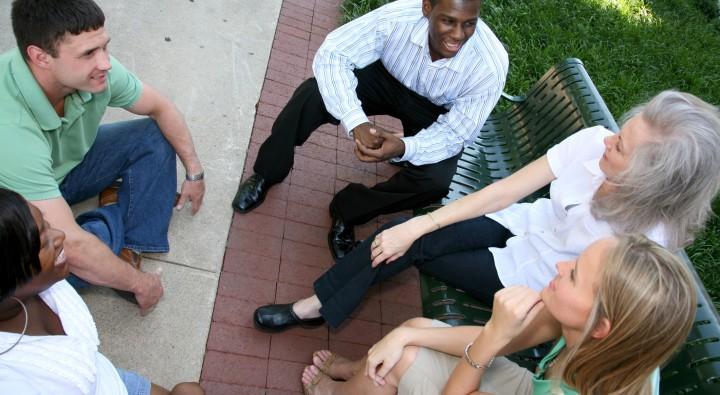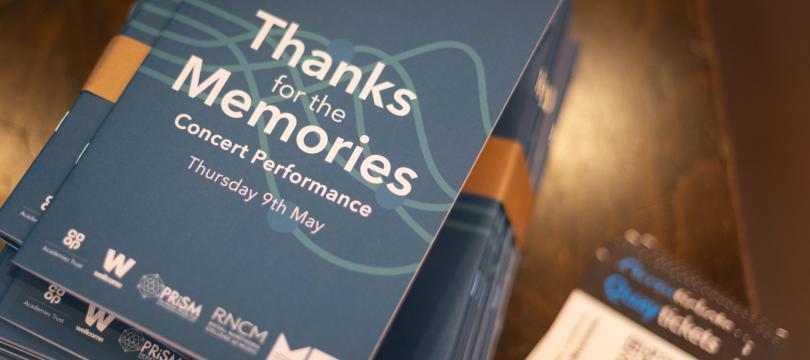Projects across the UK explore new directions for partnering with the public in research
UK Research and Innovation (UKRI) announce the exceptional proposals that have been awarded funding through their Citizen Science Collaboration Grant.

UK Research and Innovation (UKRI) announce the exceptional proposals that have been awarded funding through their Citizen Science Collaboration Grant. Find out more about the projects that are tackling some of our most pressing challenges through creative, equitable and meaningful partnerships between the public and researchers.
In Manchester this summer, young people with refugee backgrounds will begin to research ancient objects as a way of exploring the theme of forced migration. Meanwhile, people living with mental health problems across the UK will be driving innovation in the treatment of mental health issues. These are just some of the projects being funded through UKRI’s Citizen Science Collaboration Grant. Over the next three years, these remarkable projects will see hundreds of members of the public collaborating with researchers to tackle some of the most urgent challenges facing us today.
The aim of this funding is to involve the public as active and equal partners in the research process. Building on the experience of similar pioneering work, such as the AHRC-funded Connected Communities programme, we wanted to embed citizen-led research approaches across academic disciplines. In designing the call, we settled on the relatively well-known term “citizen science”, while acknowledging that methods from other disciplines such as “participatory research”, “co-production”, “community involvement” and “patient and public involvement” also value public expertise.* We also wanted this funding to enable a greater diversity of the public to be involved in research. We encouraged universities to collaborate equitably with external partners who work with communities often excluded from research.
We were delighted with the response we received to the call: responses came from across academic disciplines and all four nations of the UK. It was great to see collaborations between universities and a diverse range of organisations and communities, and such a variety of different, creative ways of involving the public as researchers. The very difficult task of selecting proposals to support resulted in five extremely high-quality projects:
Citizen scientists in Bradford and Bristol are working with the Universities of Leeds and the West of England to investigate the extent of the microplastic crisis. They will be investigating the presence of airborne microplastics in people’s homes to get a better picture of where these particles come from.
The citizen science group The Parenting Science Gang and the University of York are working alongside charities, such as The Mental Health Foundation, to support young people with mental health problems in identifying priorities for mental health research and designing research that addresses any gaps.
Young people of refugee background are working with Manchester Metropolitan University, Manchester Museum and Sheeba Arts to increase our understanding of ancient historical objects in the museum’s collections and challenge exclusionary narratives about refugees in the UK.
People living with mental health problems are working with the University of Nottingham and Kings College London to drive innovation in the treatment of mental health issues and the support available to enable people to live as well as possible.
People in Bristol, including African Caribbean communities, are working with academics from the University of Bristol, the city council and a wide range of cultural and community organisations, to address the history of transatlantic slavery, and its contemporary legacies in the city.
We are really looking forward to seeing how these projects will develop. We are working with the Institute for Community Studies to provide a support package for the projects and to gather learning and updates that we will share with the research and public engagement sectors, as well as more widely. We also want to connect learning from these projects into agendas that focus on furthering the inclusion of the community voice and enhancing the role communities can have in research and civic action, on both a local and national level and also to address key societal issues.
We are excited to share with you the journeys these projects will take and to involve you in shaping future work in this area - so please watch this space for updates and opportunities!
By Jen Grove, Steve Scott and David Chapman, UK Research and Innovation
*We also want to acknowledge that not all members of the public may refer to themselves or feel comfortable with the term “citizens”.

